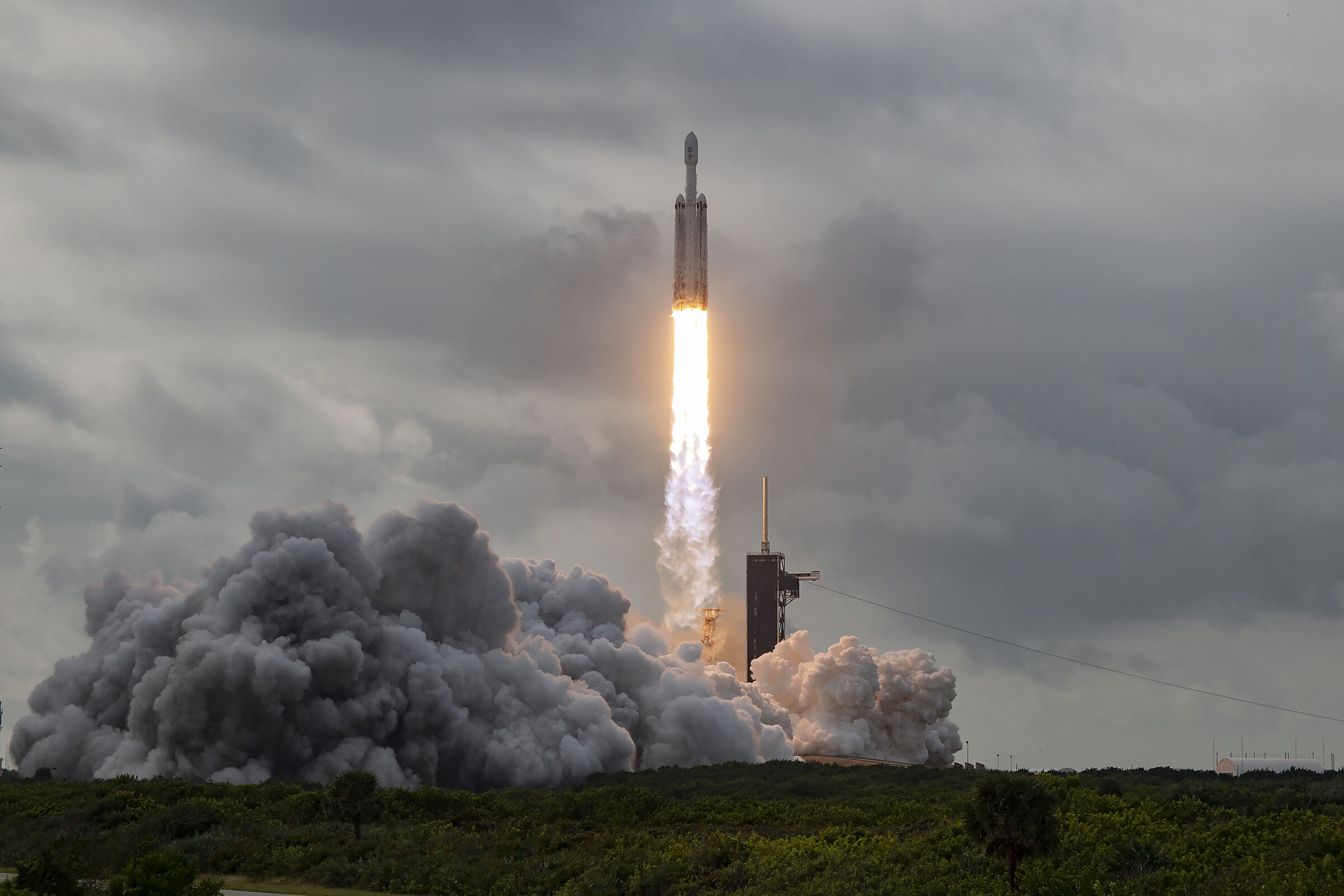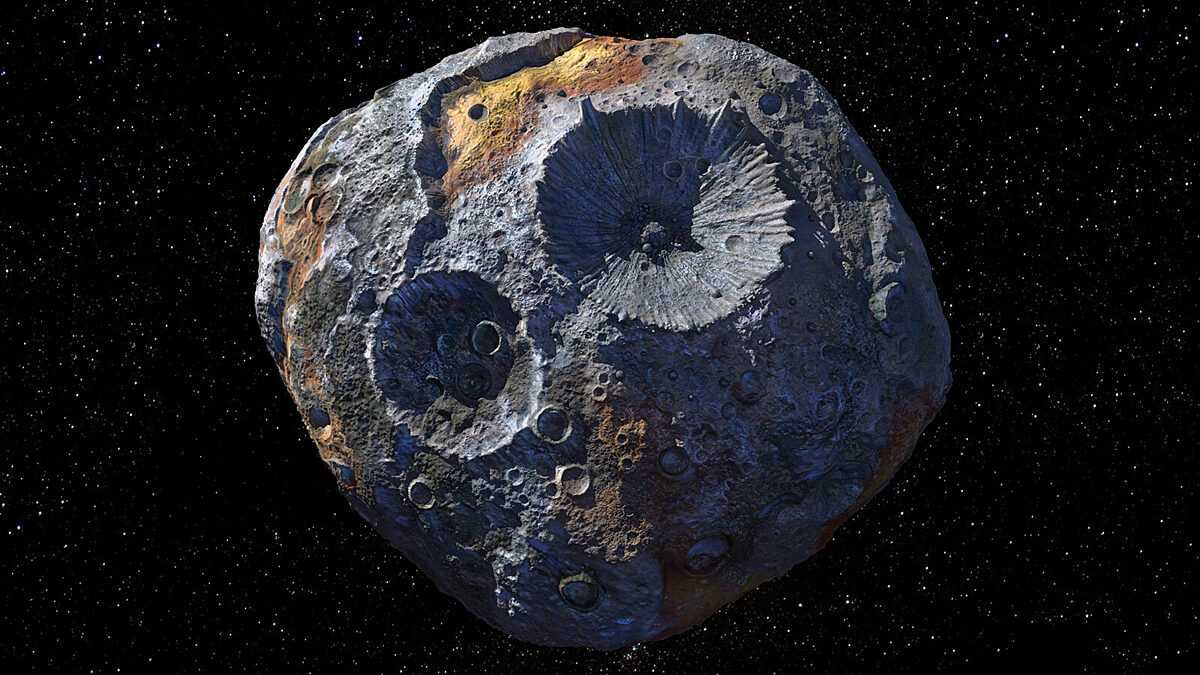Jason Davis • Oct 13, 2023
Psyche mission successfully launches
NASA’s Psyche spacecraft has begun its journey to a metal asteroid.
The space mission successfully blasted off from NASA’s Kennedy Space Center in Florida on Oct. 13, 2023 at 10:19 a.m. EDT (14:19 UTC). Heavy clouds at the launch site hampered views of a SpaceX Falcon Heavy rocket carrying Psyche into Earth orbit. After a 45-minute coast above the planet, a final engine burn pushed Psyche away from Earth, putting it on course for the main asteroid belt.

The launch was delayed one week after technicians discovered that a spare Psyche thruster used for testing was operating at higher than expected temperatures. The thrusters are used to turn and orient the spacecraft. They must operate within certain temperature ranges to stay healthy over the course of the entire mission.
The fix turned out to be relatively simple: Psyche will operate its thrusters at 30% of their maximum thrust, rather than 80%. The spacecraft will not be able to turn as quickly, but the change is not expected to impact the mission.
Psyche will journey through interplanetary space for six years to reach the same-name asteroid Psyche in 2029. Asteroid Psyche may be the exposed core of a planetesimal, a planetary building block used in the formation of planets and other worlds. Collisions with other objects may have stripped off Psyche’s outer layers long ago.
As a possible planetary core, Psyche consists of 30% to 60% metal by volume. Its surface may have craters with sharp rims and metal-rich spires towering into space.
The Psyche spacecraft is equipped with a solar-electric propulsion system that gives it a gentle push as it travels toward its destination. In May 2026, the probe will swing past Mars, using the planet’s gravity to steer it towards the outer reaches of the main asteroid belt.
The Psyche spacecraft is scheduled to spend at least 26 months orbiting asteroid Psyche, with mission operations scheduled until November 2031.
Psyche is equipped with three science instruments to determine the nature of the metal asteroid. A magnetometer will look for signs of a past magnetic field, which could be a sign that asteroid Psyche formed from a liquid metal core similar to those found in rocky planets.
A gamma ray and neutron spectrometer will record emissions from Psyche’s surface, which will help scientists determine what elements make up the asteroid. A multispectral imaging system will tell us what minerals are on the surface and create detailed, 3D maps of the asteroid.
Psyche’s communication system gives the spacecraft a fourth science instrument. By monitoring radio waves sent back to Earth as Psyche orbits the asteroid, scientists can infer the asteroid’s mass and get clues on its interior properties. The spacecraft is also carrying an optical communications experiment to test sending high bandwidth data over long distances.
If Psyche determines that the asteroid is indeed an exposed planetary core, scientists will have an unprecedented chance to study a part of a planetary body that normally lies hidden beneath the surface. This will help us understand how planetary cores form — an important piece of the puzzle as we reverse-engineer the history of our Solar System.
If the asteroid is not a planetary core, that will be equally compelling, meaning Psyche could represent a whole new class of objects from the Solar System’s early days. In either case, the mission is sure to surprise and delight as it gives us our first look at a metal world.
The Time is Now.
As a Planetary Defender, you’re part of our mission to decrease the risk of Earth being hit by an asteroid or comet.
Donate Today

 Explore Worlds
Explore Worlds Find Life
Find Life Defend Earth
Defend Earth



